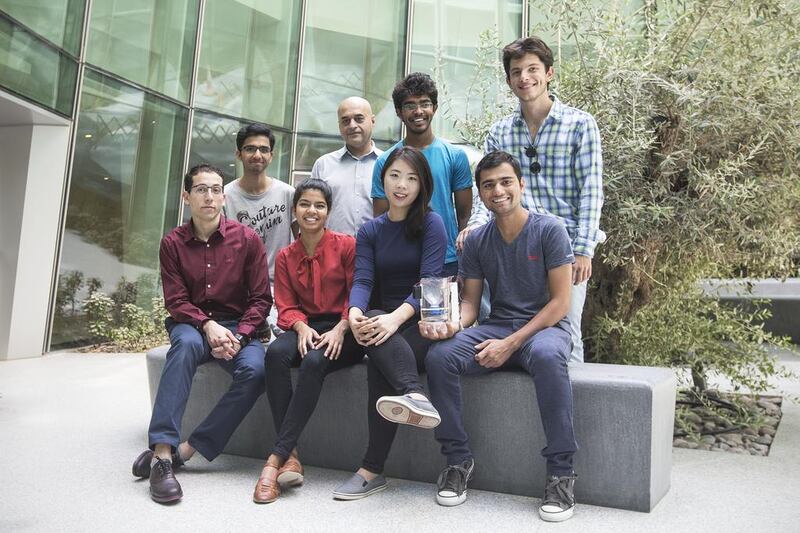ABU DHABI // Students from New York University Abu Dhabi won a bronze medal at a recently held science competition in the United States for an invention that could quell the spread of deadly mosquito-borne illnesses.
The team of eight engineering and biology students developed a “self-sustaining mosquito trap”, which uses chemical compounds in E.coli bacteria to attract mosquitoes, which are then killed upon contact with an electric mesh.
The self-sustaining aspect of the trap lies in how the potency of the deadly bacteria is maintained.
The dead mosquitoes fall into the trap and are partially digested by the E.coli, allowing the bacteria to sustain its growth and continue killing the tiny pests.
Last month three members of the group travelled to Boston to become the first team from the UAE to participate at the International Genetically Engineered Machine Competition, which aims to advance the field of synthetic biology.
For their invention, the group of biology, engineering, and mathematics students Dhanya Baby, 20, Jovan Jovancevic, 20, Krishna Gaire, 19, Muhammad Mirza, 20, Sahan Tampoe, 21, Shien Yang Lee, 22, Tina Kim, 20, and Quan Vuong, 21, brought home one of a limited number of bronze medals awarded – also a UAE first.
Biology student Dhanya Baby said the group focused on the Aedes Aegypti species, which has been found to play a key role in the spread of tropical diseases such as dengue fever, chikungunya, and yellow fever, among others.
The initial research involved working with chemical compounds known to attract the insects, she said.
“We thought it might be more promising and significant if we looked at developing a mosquito trap using common attractants,” she said.
“The mosquito has receptors for these, which essentially means it has proteins that bind to these compounds, so it’s able to sense them.”
Work on the trap began in May with brainstorming sessions, which were followed by development in a lab, leading up to the competition between September 24 and 28, which had 280 teams participating.
Research by the Bill and Melinda Gates Foundation referenced by the group reveals that mosquitoes are responsible for 750,000 deaths a year, while incapacitating 200 million people annually through malaria alone.
“Mosquitoes are considered to be one of the deadliest animals in the world, even more than human beings,” said computer engineering student Krishna Gaire.
Ms Baby said: “The diseases that we looked at have no cures. It’s a huge issue, especially in third-world countries.
“If we can come up with an environmentally sustainable trap to target these mosquitoes, it could effect a lot of people,” she said.
Engineering student Jovan Jovancevic said the actual testing of the trap would continue to determine if it could be used outside a laboratory, but a separate objective was to represent the Middle East at the international competition.
“We wanted to create this first step for future generations, one for our university and also for the region,” he said.
While winning the first medal for the UAE was an accomplishment, Kourosh Salehi Ashtiani, an associate professor of biology at NYUAD and the group’s primary mentor, said putting together a team of students from different fields and cultural backgrounds – all eight come from different countries – at the same table was also a goal of the project.
“The whole idea of the project was based on the team brainstorming and discussing the project,” he said.
“We are really excited to see students from different disciplines coming together.”
esamoglou@thenational.ae






